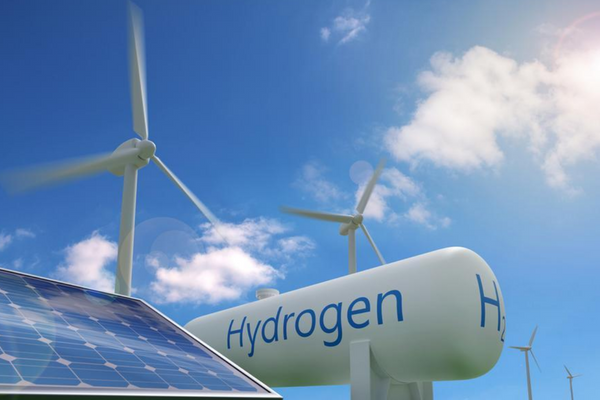With an US$80 million loan to Egypt Green to build the nation’s first green hydrogen facility, the European Bank for Reconstruction and Development (EBRD) is assisting in the decarbonization and Paris alignment of Egypt’s economy. Egypt Green is an environmental startup in Egypt that claims to have reduced reduced 2.5 tonnes of carbon emission in the country so far.
Orascom Construction, one of the largest engineering and construction groups in the Middle East and North Africa, Fertiglobe, one of the largest seaborne exporters of combined urea and ammonia, Scatec ASA, a Norwegian integrated independent power producer, and the Sovereign Fund of Egypt, a state-owned, privately managed investment fund positioning itself as the partner of choice in Egypt, are the owners, builders, and operators of Egypt Green.
With the help of EBRD financing, a 100 MW electrolyzer facility that runs on renewable energy will be purchased and built. The plant will deliver up to 15,000 tonnes of green hydrogen yearly once it is fully constructed. This will then be a component in the creation of green ammonia that will be marketed on the Egyptian and global markets.
Despite being a necessary component of nitrogen fertilizers, a vital crop input that feeds 40% of the world’s population, ammonia manufacturing is energy-intensive and contributes to about 1.8 percent of global carbon dioxide (CO2) emissions. Therefore, a key component of assisting the world in reaching its net zero targets by 2050 is reducing the amount of CO2 produced during the manufacturing process. The key to getting there is believed to be the use of green hydrogen, which is created from renewable energy sources.
This significant undertaking is the first step in Egypt’s ammonia industry’s decarbonization. In Africa’s largest ammonia-producing nation, where current production is natural gas-based and results in significant carbon emissions, it will set the bar for future green hydrogen projects and demonstrate that hydrogen and ammonia production can be decarbonized.
When operating at full capacity, the facility’s green hydrogen generation will reduce annual CO2 emissions by more than 130,000 tonnes. The EBRD’s first member is Egypt. The Bank has made about €10 billion in 154 projects all around the nation since it began operating there in 2012.



